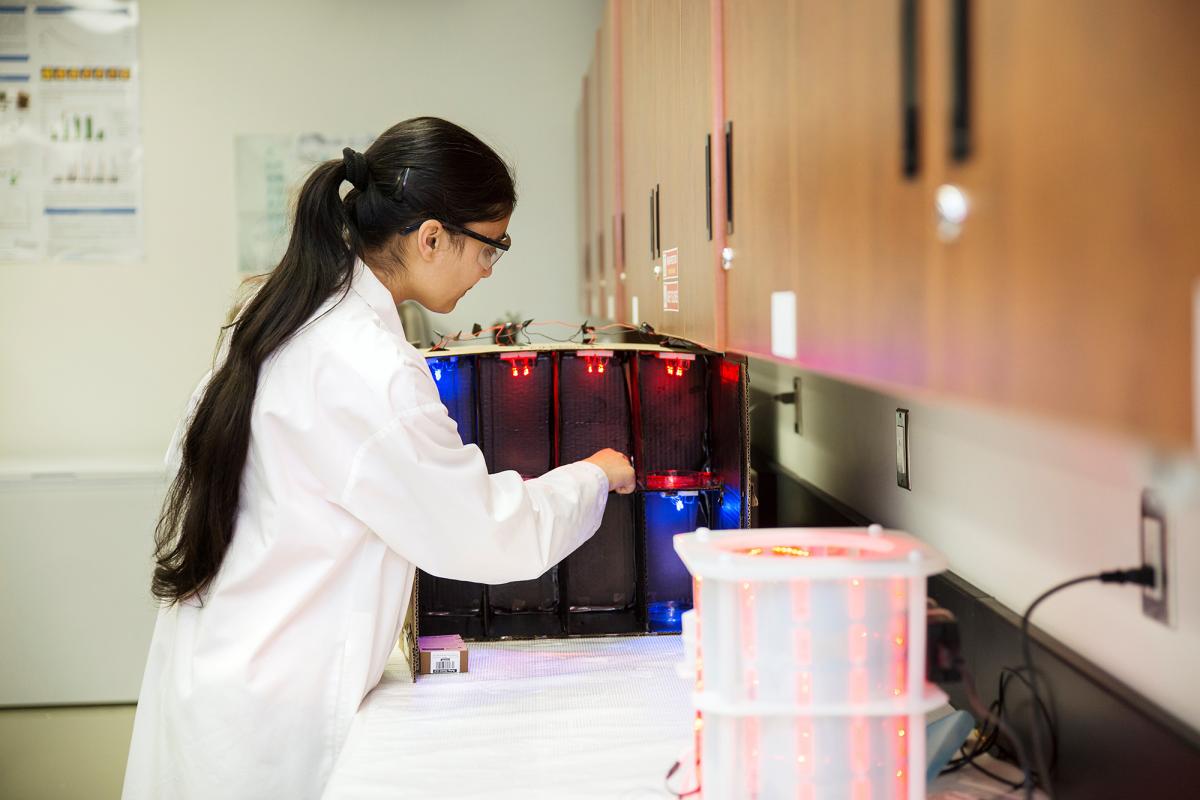Five Graduate Students Win CSBE/SCGAB Awards
 Ramandeep Kaur Sandhu in the laboratory working on a postharvest system that makes use of light emitting diodes
Ramandeep Kaur Sandhu in the laboratory working on a postharvest system that makes use of light emitting diodes
Each year, the Canadian Society for Bioengineering/La Société Canadienne de Génie Agroalimentaire et de Bioingénierie (CSBE/SCGAB) presents Awards and Grade of Fellows to celebrate and encourage excellence within the Canadian bioengineering community. An outstanding five University of Guelph engineering master's students were recipients of the Graduate Thesis Award (MSc).
- Ramandeep Kaur Sandhu for a thesis entitled "Evaluation of the effectiveness of light emitting diodes in post-harvest shelf life extension of blueberries" (Advisor: Ashutosh Singh and Christopher Collier).
- Kelsie McNeill for a thesis entitled "Time Series Analysis and Statistical Model Development for Food and Water Availability in the Grand River Watershed" (Advisor: Andrew Binns and Ashutosh Singh).
- Baljeet Kaur for a thesis entitled "Assessment of Water Security in Grand River Watershed, South-western Ontario, Canada" (Advisor: Prasad Daggupati).
- Taranjot Singh Brar for a thesis entitled " Modification of the LTHIA GIS model to assess the water quantity and quality of Canadian Great Lakes watershed" (Advisor: Prasad Daggupati).
- Charles Harrison Brodie for a thesis entitled " Development of Accessible Hyperspectral Imaging Architectures Towards Biomedical Applications" (Advisor: Christopher Collier).
“The number of winners from the University of Guelph speaks to the quality and research potential of our engineering students,” says Christopher Collier, engineering professor and thesis supervisor for two of the award recipients. “We have seen exceptional outputs from these students and continued advancement in their skills, with potential to make significant contributions to biological engineering during their careers. For example, Ramandeep Kaur Sandhu’s light-based research has great potential to reduce postharvest losses in food and Harrison Brodie’s work has important implications for widespread application of hyperspectral imaging.”